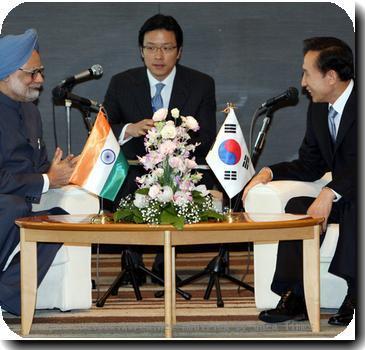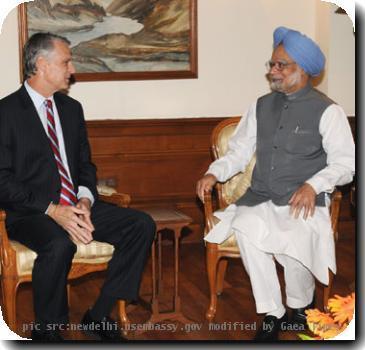Kashmir police warn people will be shot on sight in they break curfew amid anti-India protests
By Aijaz Hussain, APTuesday, August 3, 2010
Police warn of shooting if Kashmiris break curfew
SRINAGAR, India — Four people were killed Tuesday as thousands of protesters ignored police warnings they would be shot on sight if they defied a round-the-clock curfew declared in Indian-controlled Kashmir in an attempt to quell weeks of deadly civil unrest against Indian rule.
More than 20 people were injured in clashes with government forces as they gathered or marched in the main city of Srinagar and two villages, a police officer said, speaking on condition of anonymity because he was not authorized to speak to the media.
Two protesters were killed in Srinagar where government forces fired at hundreds who hurled rocks and shouted, “Go India! Go back!” and “We want freedom.” The news of those casualties brought out more demonstrators, the officer said.
Another person was killed in the firing by government forces in southern village of Frisal where thousands of protesters set a police station on fire, the officer said.
At least 15 people were wounded, six critically, in Frisal, the officer said.
Clashes also erupted in Zainakote, a village on the outskirts of Srinagar, where protesters hurled rocks at the troops, said the officer.
Troops fired to disperse them, killing one and wounding at least two others, the officer said.
Meanwhile, a young Kashmiri Muslim died in a hospital in Srinagar on Tuesday, two days after he was injured in the southern town of Khrew in police firing, the officer said.
Hundreds also defied the curfew in the western town of Budgam and held a protest march. Government forces fired live ammunition and tear gas to disperse the protesters, injuring four people, the police officer said. Similar protest marches took place in the southern towns of Kulgam, Pampore, Khrew and scores of other villages, police said.
At least 45 people have died over the past seven weeks in street clashes between Muslim protesters and paramilitary troops in predominantly Hindu India’s portion of the Himalayan enclave which is divided with Pakistan and claimed by both. The unrest is reminiscent of the late 1980s when protests against New Delhi’s rule sparked an armed conflict that has claimed 68,000 lives, mostly civilians.
Police patrolled the streets of Srinagar on Tuesday and used loudspeakers to warn residents that they would be shot on sight if they came out of their homes. Similar warnings were made in other parts of the region, where tens of thousands of armed police and paramilitary soldiers were deployed to prevent unrest but failed to stop protesters from gathering in many places.
The army was patrolling the main highways to stop protesters from blocking them.
“We’re making sure the highway remains open and soldiers are patrolling on a routine basis,” army spokesman Lt. Col. J.S. Brar said.
Kashmir’s top elected official, Omar Abdullah, renewed his appeal for calm and reviewed the situation with military, police and intelligence officials soon after returning from a meeting Monday with Prime Minister Manmohan Singh in New Delhi.
Abdullah and Singh discussed ways of defusing the crisis and restoring normalcy in Kashmir, officials said.
Last week, local authorities asked two retired judges to investigate the deaths of protesters, but the move has failed to placate young Kashmiris.
India and Pakistan have fought two wars over control of Kashmir since they gained independence from Britain in 1947.
Separatist politicians and militants in Kashmir reject Indian sovereignty over the region and want to carve out a separate homeland or merge with predominantly Muslim Pakistan.
Tags: Asia, India, Kashmir, Manmohan Singh, Municipal Governments, New Delhi, Pakistan, Protests And Demonstrations, South Asia, Srinagar, Violent Crime

